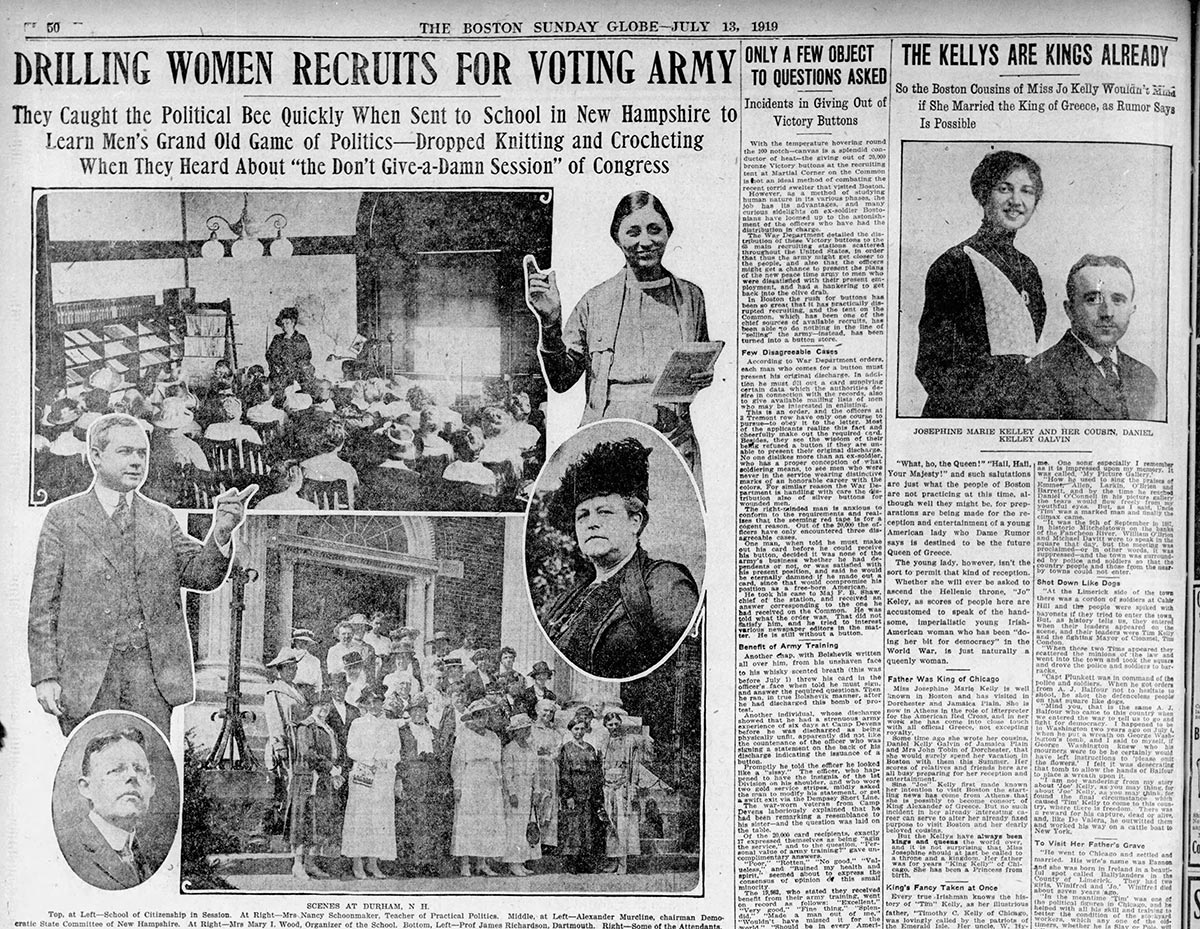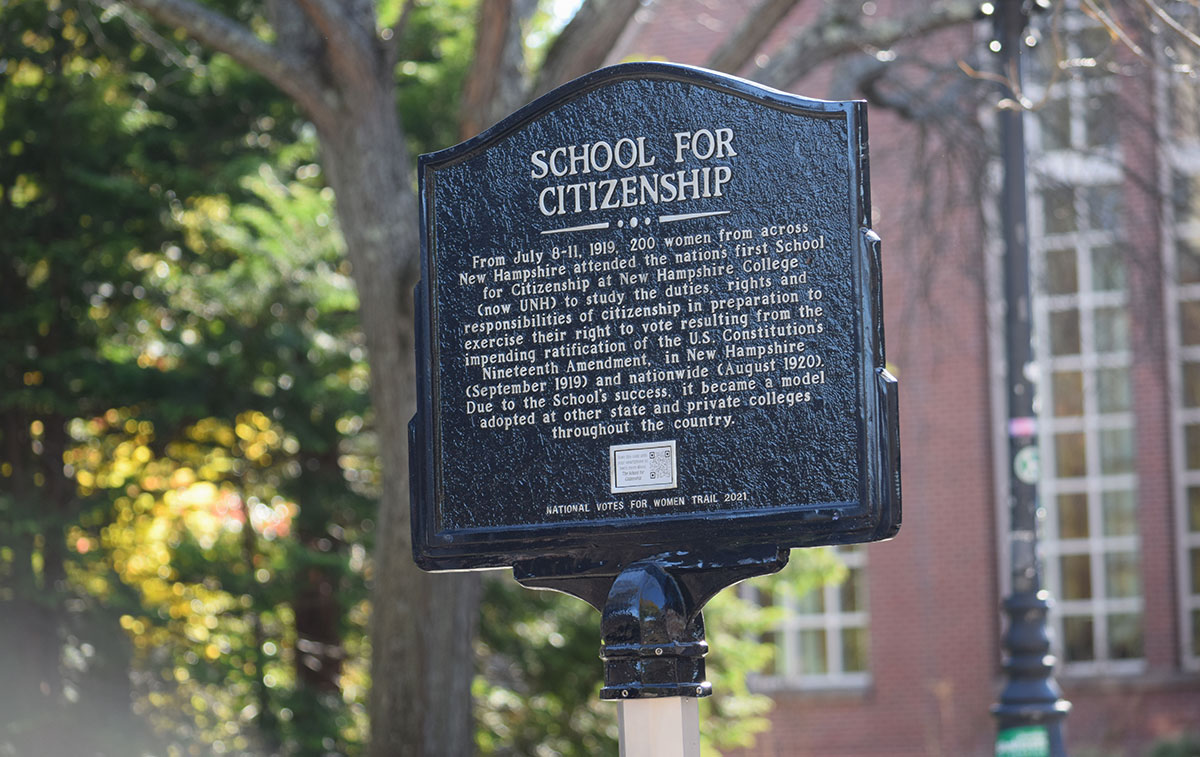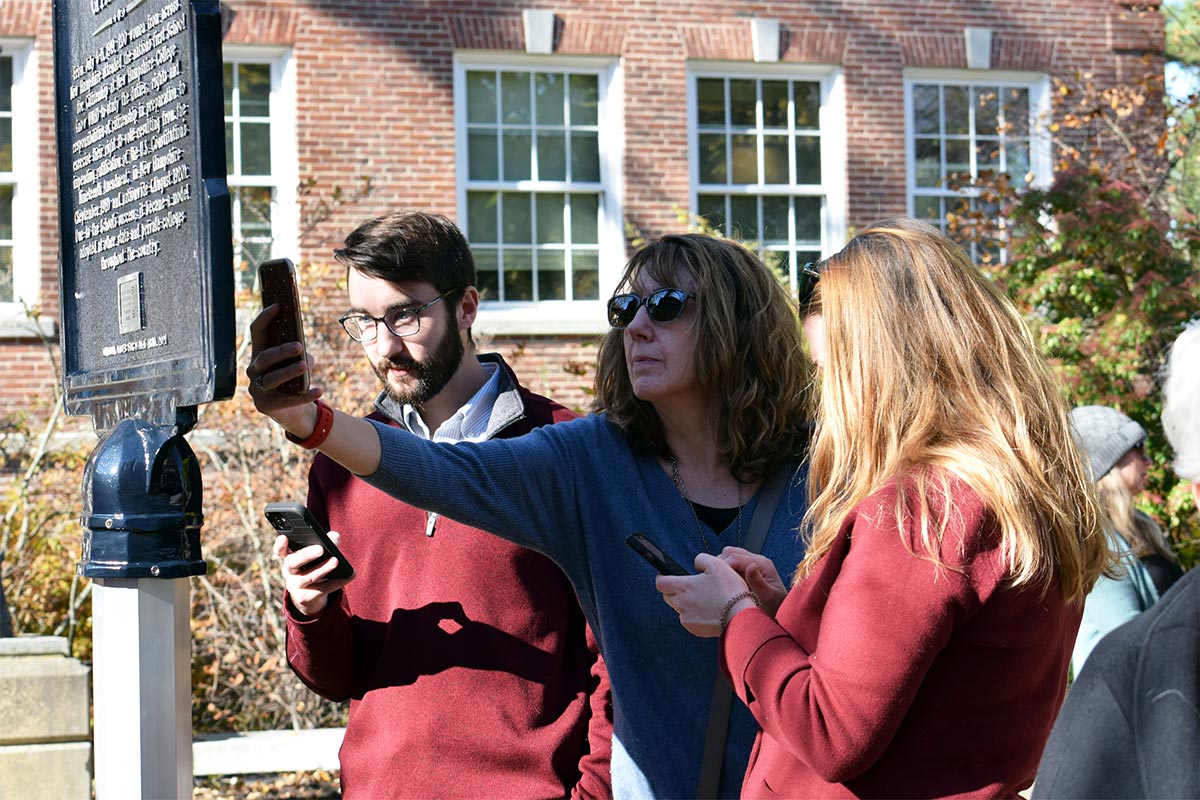Current

A July 1919 Boston Globe article notes that women attended the school to “learn men’s grand old game of politics.”
A Place in Suffragist History
historical marker in Murkland Courtyard will serve as a permanent reminder of UNH’s unique role in women earning the right to vote in America. “Markers nudge us to recall, and to reflect on, the significant debt current generations owe to the transformative actions and grit of those who have treaded the path before us,” said College of Liberal Arts Dean Michele Dillon at a November dedication ceremony. “This marker is particularly special because it commemorates a major moment in the ongoing march toward women’s full equality.”
The event was the culmination of research by Nicole Ruane, lecturer in humanities, and two humanities dual majors, Annelise Papinsick ’21 and Virginia Walsh ’21, who set out to learn more about the School for Citizenship at the behest of Dean Michelle Dillon and the New Hampshire Women’s Foundation. The Foundation worked with the Pomeroy Foundation to enhance the visibility of the N.H. Women’s Heritage Trail.
Digging through more than 60 sources, including newspaper, magazine and journal articles as well as books, the team found that an event launched from the brain of Portsmouth, N.H., suffragist Mary Inez Wood became a model for the nation, educating a generation of women as they prepared to execute their new right to vote.

Michelle Morrissey ’97
Wood, who was active in promoting women’s causes, brought the idea of a school to help women learn about their rights and responsibilities as voters to New Hampshire College’s President Ralph Hetzel who was enthusiastic, the Portsmouth Herald reported.

Michelle Morrissey ’97
Those involved in organizing and teaching the school wanted to replicate it far and wide.
“In the end, hundreds of similar programs took place all over the country, and the League of Women Voters held several schools to train leaders to hold their own local schools,” says the research team on their project website. “The League had a plan for every state as well as a correspondence course for Alaska.”
All three researchers say the school was likely attended by middle- and upper-class white women and lamented that without the primary source of a registration list, they cannot determine if any women of color, or women who would have been considered among the working poor were able to attend.
Regardless, Ruane, Papinsick and Walsh have been invigorated and inspired by this project, they say. In addition to the school’s website, the team developed Wikipedia pages dedicated to some of the women involved, including one on New Hampshire’s Mary Inez Wood. They hope that more people will be as impressed as they have been when learning about the contributions and talents of these impactful women.
“I am delighted that the plaque will be at such a central place on campus,” says Dillon. “To me, the school represents the promise of democracy, even as it may have been uneven in whom it served. It’s exciting to see that UNH played a foundational role in women’s suffrage.”
— Michelle Morrissey ’97, with content from Susan Dumais ’88, ’02G